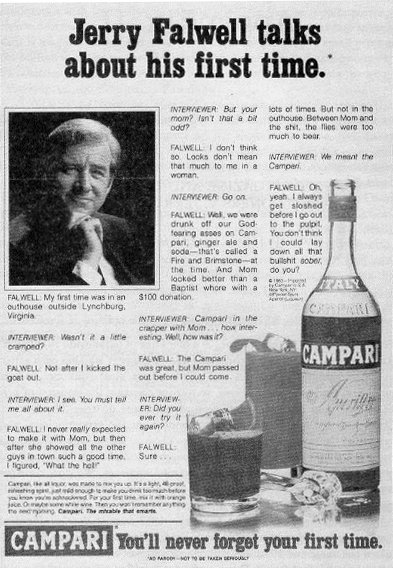So I can just make stuff up about another person, create fictional events and name them as perpetrating those events and profit off of it because they may be considered a public figure? That just doesn't sound right.
The case i cited is pretty well known (it appeared in "the people vs. larry flynt"). In it, the Magazine hustler published a fictional satiric interview with television preacher Jerry Falwell. In this made up interview, Falwell described, in detail, having drunken sex with his own mother in an outhouse.

The court concluded (in part) that:
This case presents us with a novel question involving First Amendment limitations upon a State's authority to protect its citizens from the intentional infliction of emotional distress. We must decide whether a public figure may recover damages for emotional harm caused by the publication of an ad parody offensive to him, and doubtless gross and repugnant in the eyes of most. Respondent would have us find that a State's interest in protecting public figures from emotional distress is sufficient to deny First Amendment protection to speech that is patently offensive and is intended to inflict emotional injury, even when that speech could not reasonably have been interpreted as stating actual facts about the public figure involved. This we decline to do.
At the heart of the First Amendment is the recognition of the fundamental importance of the free flow of ideas and opinions on matters of public interest and concern.
you write:
I could back this false narrative up with chat logs which show they use known operative techniques of disruption and deflection when caught in lies using multiple sockpuppet accounts to push unwanted critique out of other users sight while backing their own claims with false support, all while never responding to their accusers questions, but instead attempting to discredit those questioning them in the public's eye ... and I could profit from such an obviously bullshit story?
Yes, you defintiely could. And its good that you could.. to further quote hustler v falwell (which addresses this very issue)
the ultimate good desired is better reached by free trade in ideas -- that the best test of truth is the power of the thought to get itself accepted in the competition of the market. . . . The sort of robust political debate encouraged by the First Amendment is bound to produce speech that is critical of those who hold public office or those public figures who are intimately involved in the resolution of important public questions or, by reason of their fame, shape events in areas of concern to society at large.
The basic idea here is that it i have to worry that a certain characterization of someone elses ideas, or the motives underlying them, will hurt their feelings, it will lead to a chilling effect and self censorship. Especially if the person in question in one that shapes public policy.